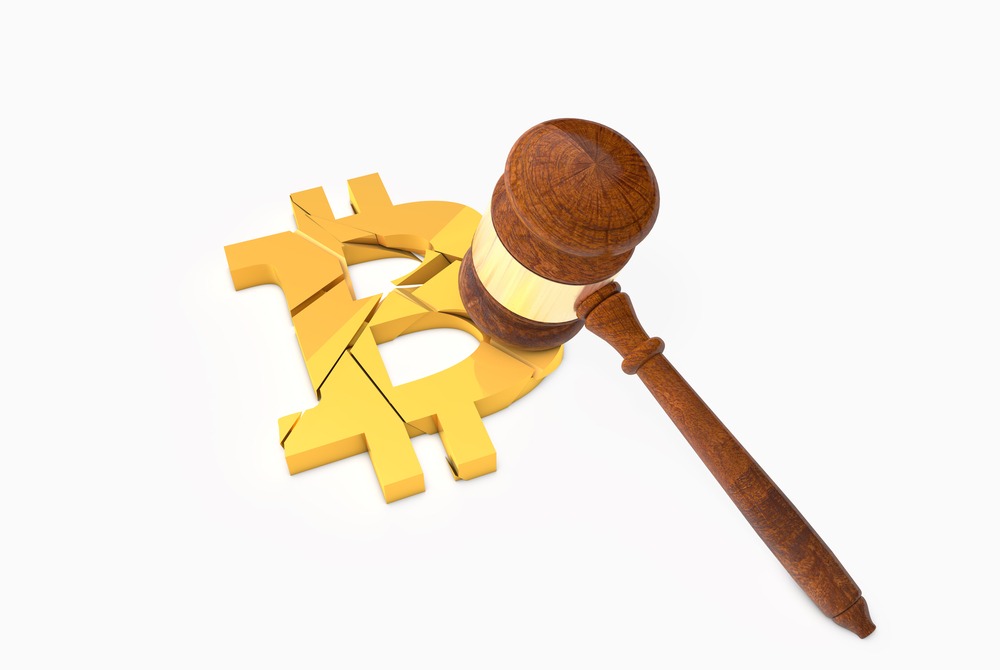
The most relevant problem with the use of cryptocurrencies
The rapid spread of cryptocurrencies in online casinos runs counter multiple attempts by various government agencies to make the gambling business as regulated as possible. In other words, the emergence of online casinos where only cryptocurrencies are used repelled the regulation of online gambling business for a good dozen years. The regulation of the gambling business has always been complex. Before the Internet era, casinos faced a similar problem: it was difficult to control how much money was actually won or lost. In many countries, this problem was solved by introducing an expensive gambling license which embraced the cost of the license itself as well as the cost of each gaming table and machine. With the advent of the Internet epoch, this problem only worsened. The newborn online business operators neither had to get the expensive gambling license nor to buy premises and gambling equipment. Likewise, they did not bear any responsibility for their activities, so they were able to work the way they want. There were now laws to govern gambling on the Internet at that time. However, as the Internet gambling industry has been developing even since, many countries rushed to make this business area regulated. Some of the biggest gambling jurisdictions in the world, such as the United Kingdom Gambling Commission and Malta Gaming Authority, have already recognized BTC as a legitimate payment method, allowing its online casinos to accept this means of payment under specific terms and conditions.Here you are the main goals of the regulators of the gambling business:
- to achieve transparency of operators’ activities,
- to achieve transparency of players’ funds,
- to reduce the outflow of funds to foreign or shadow operators
- to create the concept of responsible gaming for both the operator and the player.

Pros and cons of cryptocurrencies
In order to determine the further use of cryptocurrencies in the online gambling business, two questions have to be answered:- Why are they so attractive?
- What measures have been and will be taken by the regulators to exercise control?
Pros
- Everyone has the opportunity to independently create crypto currencies.
- Anonymity: there is only a purse number exposed to the public domain.Due to no regulation, operators do not care about the origin of money. In turn, the profit received can be withdrawn easily (or with a certain number of difficulties) or used to pay for a number of services.
- Independence: you become an element of the system and manage your money on your own. Nobody can block or confiscate your coins, and this advantage of decentralized cryptocurrencies is huge.
- Due to the sharp rise in the exchange rate of cryptocurrencies, many people get too much easy money. Casino can undoubtedly take advantage of this, because such money is as easy to spend as to earn.
- Very low cost of financial transactions
- People who owe cryptocurrencies sometimes face difficulties when decide to change it for services or regular money. So, casinos can be the easiest way to get rid of excess cryptocurrencies.
- Possibility of fast and direct transactions with no intermediaries or payment commissions charged for sending and receiving funds
- Storage of funds is free and reliable when certain security measures are implemented: for example, data storage devices with cryptocurrencies must be isolated from physical and remote access.
- Bitcoin can be considered a more reliable asset for saving money than currencies in countries with weak economies
- Limited number of currency units makes inflation impossible
- Cryptocurrency cannot be counterfeited.
- Deposits in bitcoins are not refundable i.e. no chargebacks can be made. So, operators run no risks of having to return the money received from players
- Cryptocurrency casinos and betting sites run special generous promotions and offer unique bonuses for new users who register and deposit with cryptocurrencies.
- Provably fair games — Provably fair technology is only seen in Bitcoin casinos. This is a tool that allows players to verify the result of each spin, dice roll, or card shuffle and ascertain that it is completely fair and random. Through different bits of software technology, such as seeding, SHA, and hashing, players can trace back every outcome in the game and see how fair and random it is.
Cons
- Low level of security caused by lack of regulation instruments
- The loss of password or mobile phone can lead to the loss of all funds.
- Restrictive actions and harassment by state bodies and, as a result, restrictions by gambling content providers
- Relatively high volatility of the exchange rate provokes serious currency risks.
- Growing cost of software, increasing network loading, etc.
- Low popularity of cryptocurrencies if compared to other currencies greatly limits the number of potential customers and also significantly complicates profit generation.
- Even though the number of crypto casinos is growing, it is still not so widespread, so there aren’t too many crypto online casinos to choose from. Also, only the most popular cryptos, such as Bitcoin, litecoin, and ethereum, are present in most casinos, while others are not.

How market regulations affect cryptocurrencies
Now that we have determined the major reasons for using cryptocurrencies in the gambling business, we can proceed to the second part of our case study. Let’s consider some of the national regulators’ actions that have already been undertaken and, possibly, will be undertaken in the near future:- Almost all European countries as well as some US states have developed and launched projects of their own gambling licenses which allow for operator's transparency once obtained. Now states can not only see the financial statements of licensed gambling companies but also oblige operators to perform procedures for anti-money laundering, counter-terrorism, KYC and fair play.
- Different types of licenses were created aimed at regulating all spheres of the online gambling business from software manufacturers to operators.
- Some countries that have not yet created their own licenses banned the online gambling business.
- The organization of the online gambling business without an appropriate license in countries where this business is banned or regulated may result in prosecution.
- Domain names of gambling websites that give access to players in regulated or prohibited markets illegally get blocked on these territories.
- It has become almost impossible to open bank accounts for online gambling companies which do not have a license in the market where it applies or is planned to apply.
- The advertising of the gambling business has become banned or restricted.

Requirements for operators
A well-regulated gambling business does not want to lose the opportunity of earning extra profit by accepting deposits in cryptocurrencies. Therefore, certain measures are implemented to make the use of cryptocurrencies in the gambling business acceptable to regulators. At the moment, the basic requirements for regulated operators are:- Operators must ensure the fulfillment of the requirements of the Third Anti-Money Laundering Directive of the European Union, as well as the requirements of any other legislation to replace the current AML legislation.
- Operators must correctly perform the KYC procedure (Know Your Client).
- When using cryptocurrencies, operators must adopt additional procedures and requirements for AML documentation so that they accurately determine the origin of players' funds and fulfill their proper identification.
- Deposits from players using cryptocurrencies must be processed either directly by operators or by companies that have a corresponding financial license in the respective territory.
What’s Next for Cryptocurrency Gambling?
When fulfilling the abovementioned requirements, such advantages of cryptocurrencies as anonymity and independence are completely lost. Therefore, the future of cryptocurrencies in licensed casinos can be described as follows:- Those players who are ready to show the origin of their funds and their identify, if necessary, will be able to play in regulated casinos. However, the percentage of such players from the total will not be large, since the main advantages of making deposits in cryptocurrencies will be lost. Cryptocurrencies will be another additional tool to replenish accounts in online casinos.
- The rest of players who do not want to disclose the origin of their funds and their identity might prefer to play on unregulated websites in highly volatile currencies. Such a scheme will be possible only in the short term, until state authorities adapt to the current situation in the market in terms of cryptocurrencies usage.
- In two or three years, the regulation of cryptocurrencies may reach a sufficiently high level to make the work of unregulated operators extremely difficult. The income in cryptocurrencies will become more transparent.


